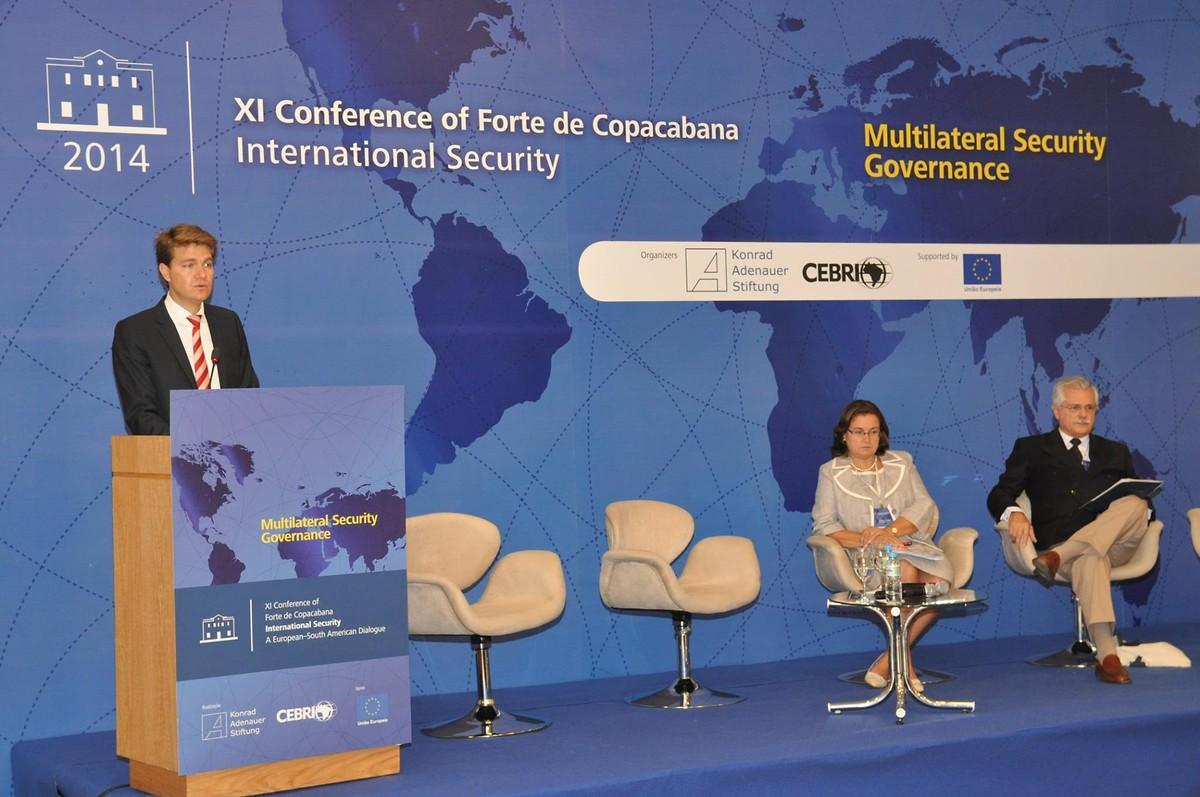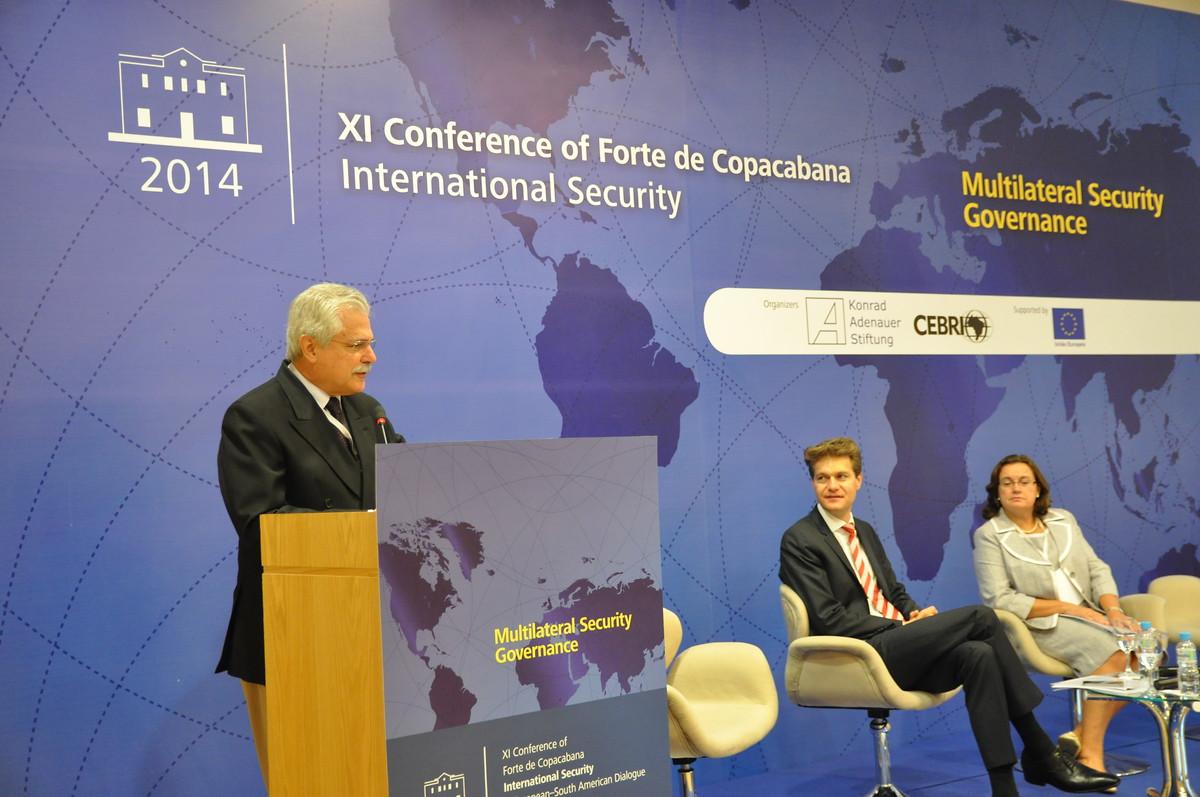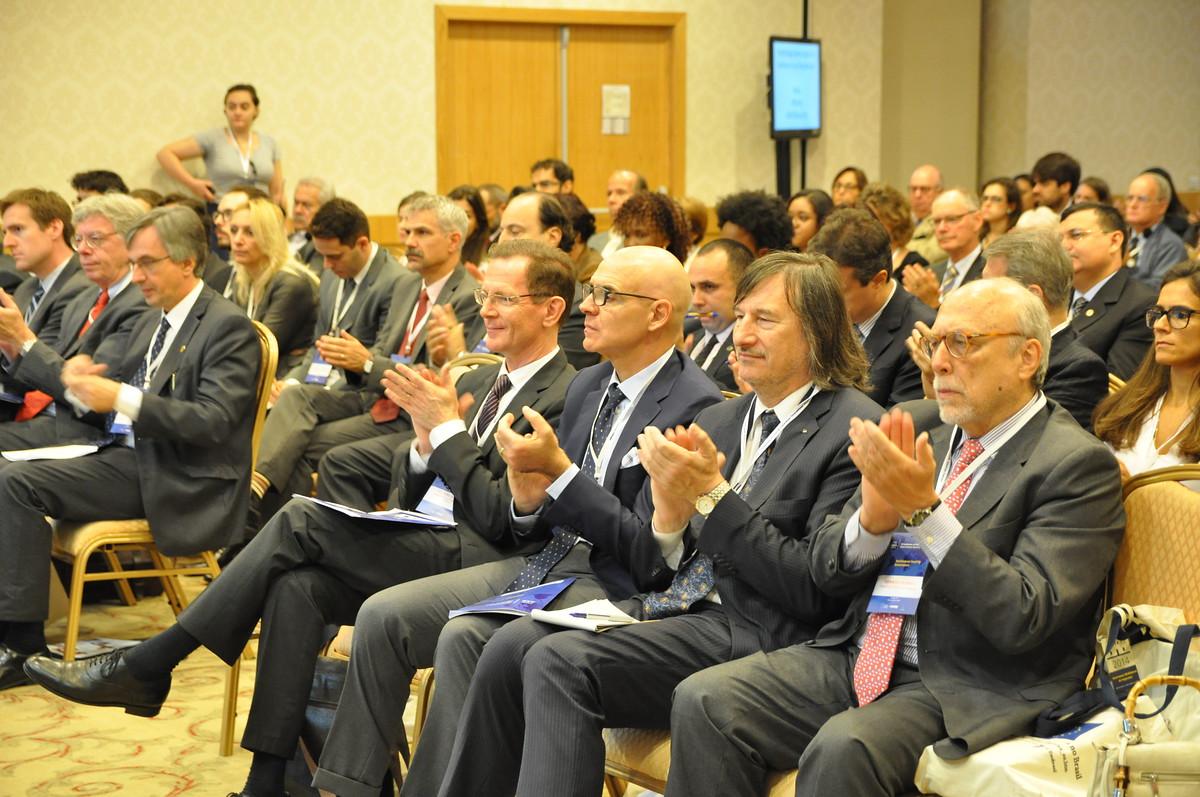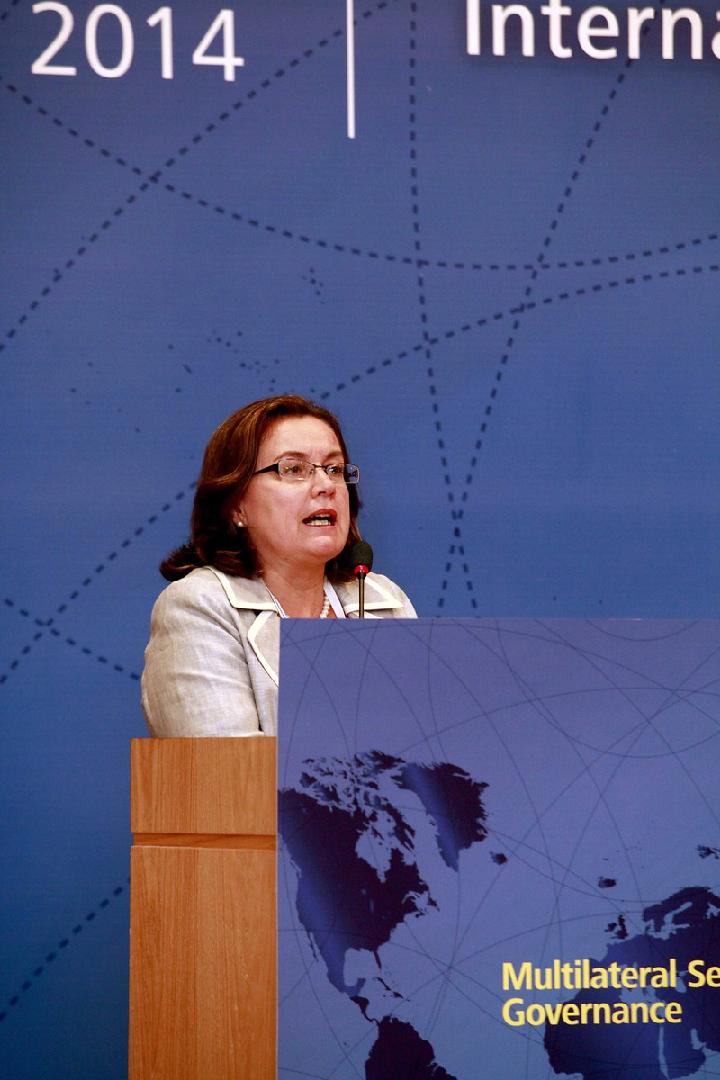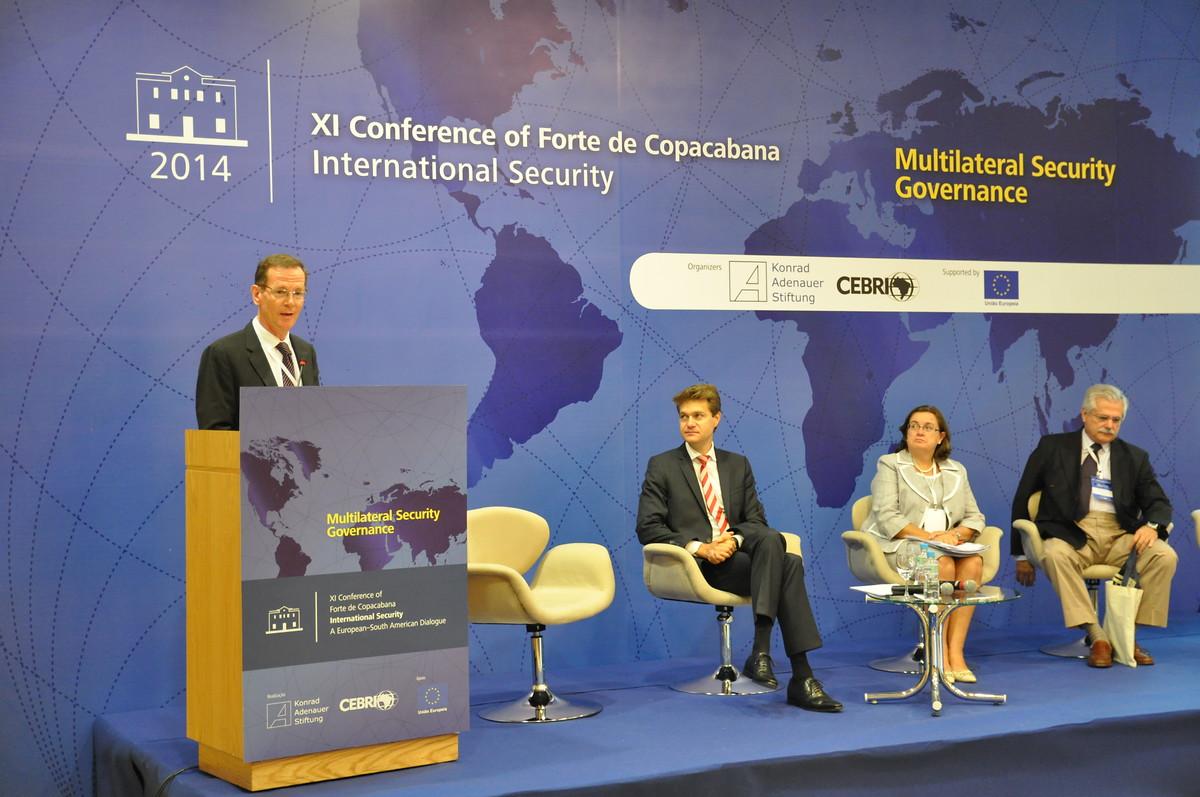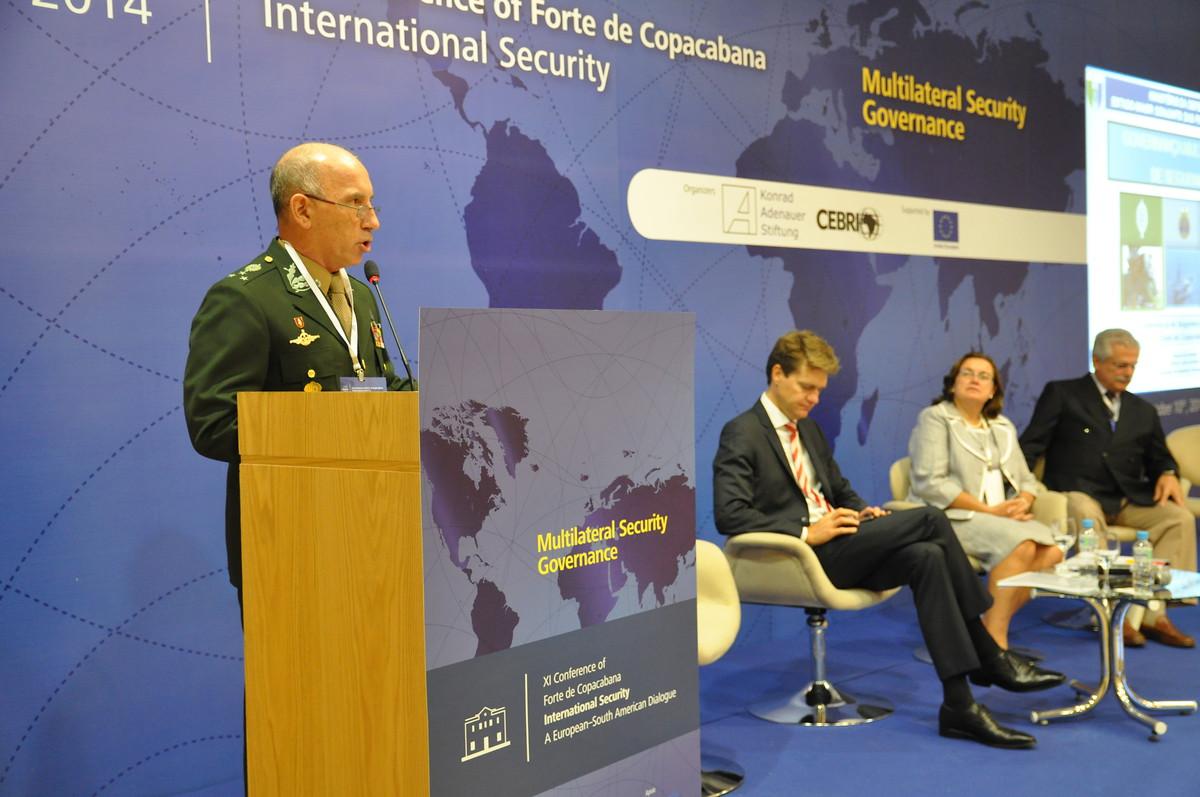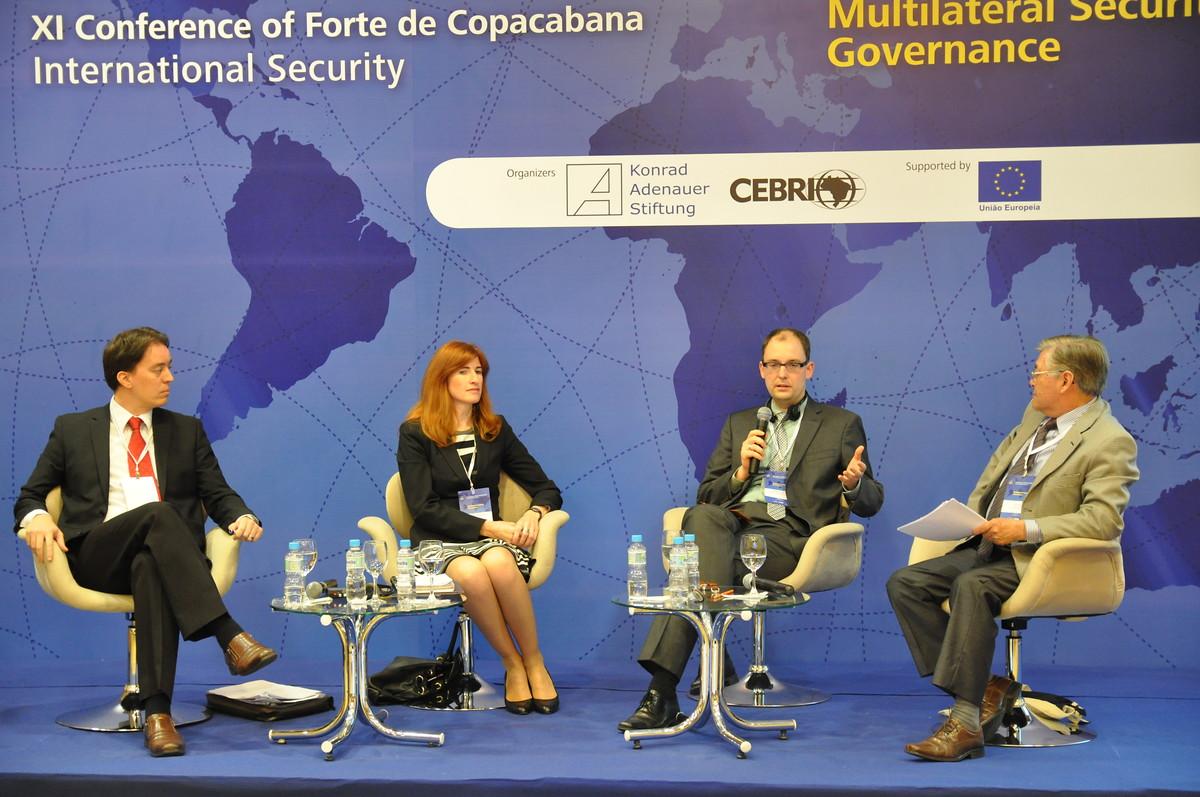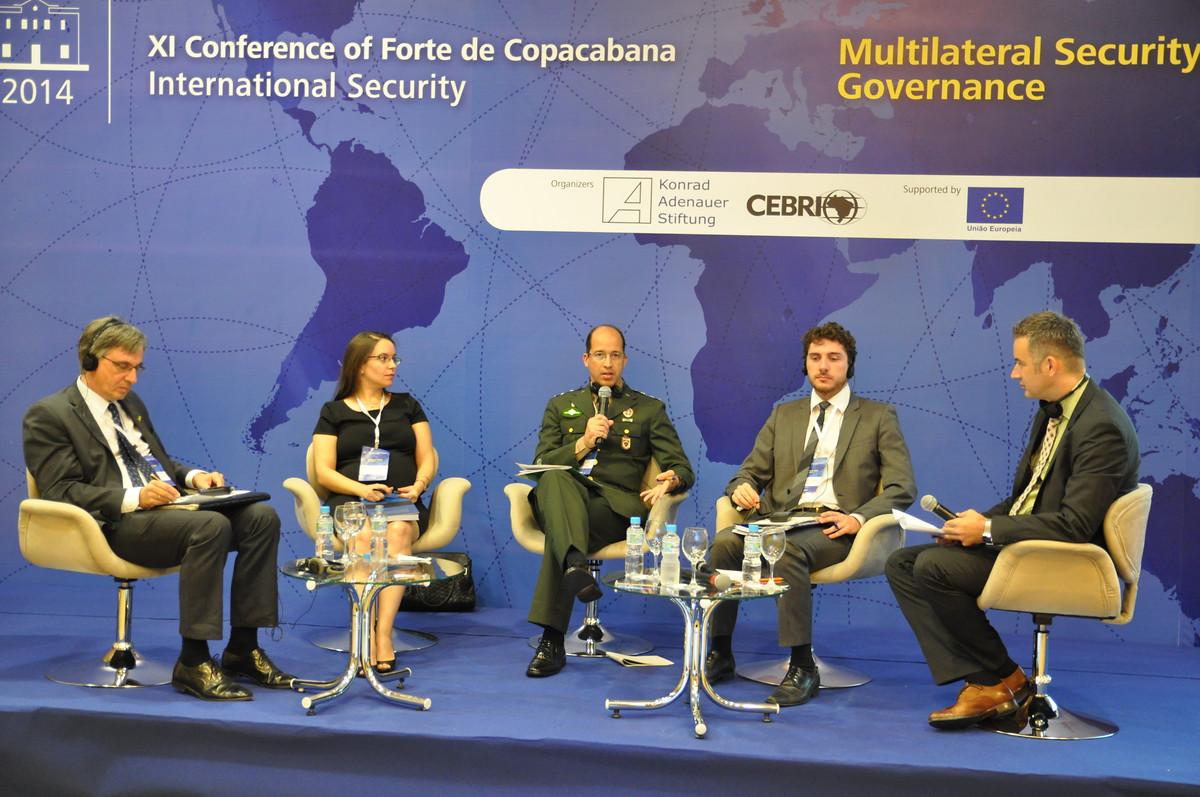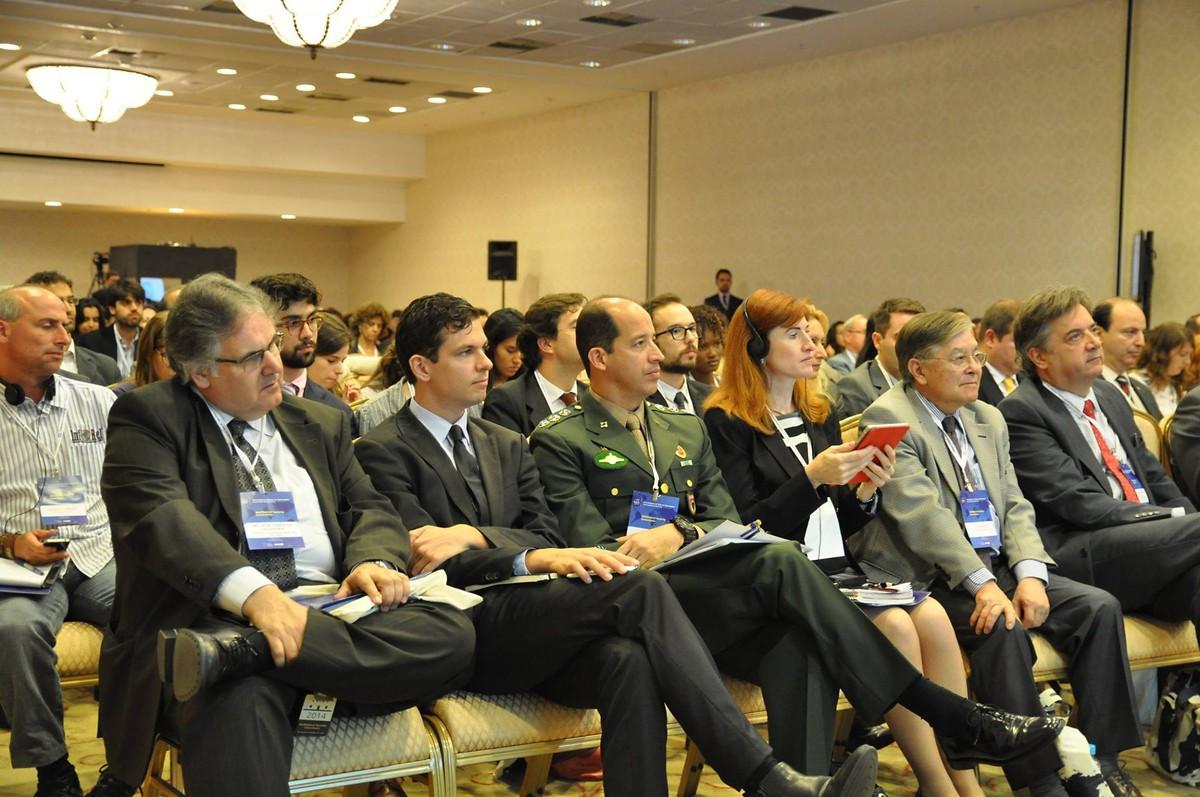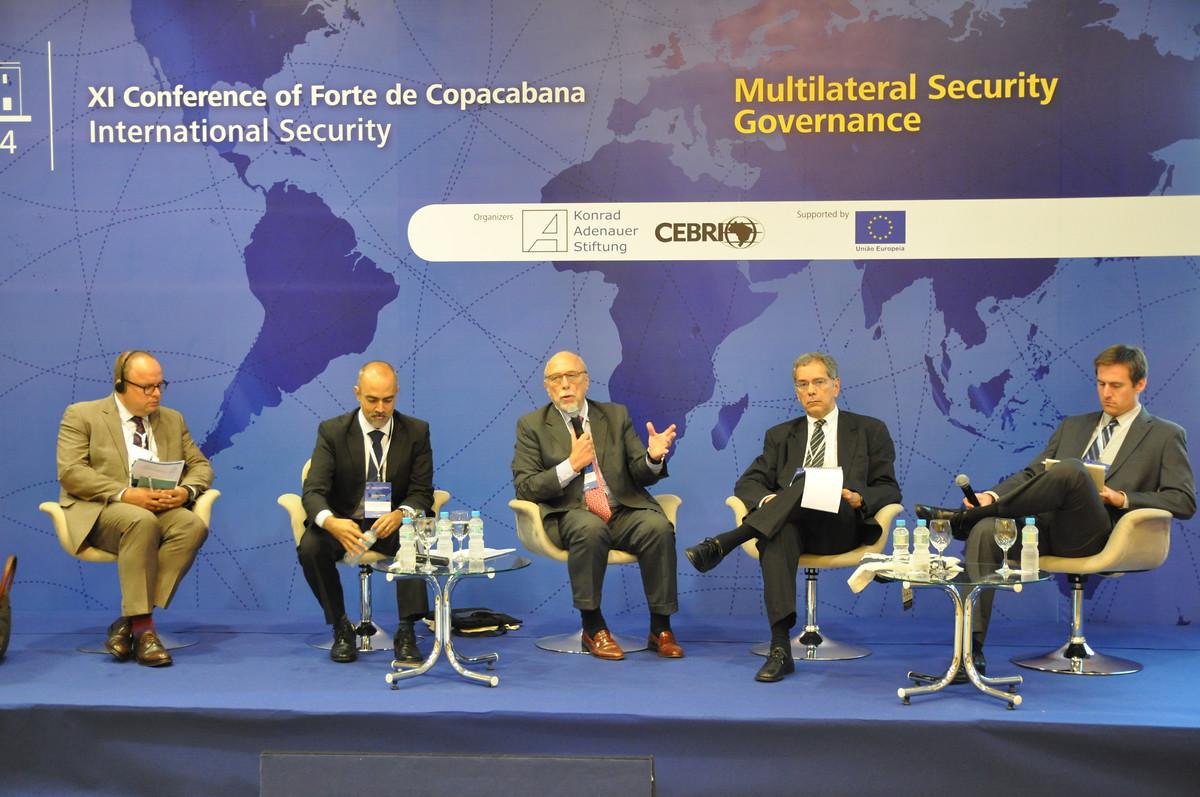Event reports
With more than 350 guests, the organisers of the security conference "Forte de Copacabana" managed to set a visitor record once again for the 11th edition of the event. The discussion about security policy-related issues and the associated positioning of Brazil as an emerging player in the international security architecture raised growing interest among leading figures in European and international diplomacy that are accredited in Brasília. A large number of representatives of think tanks with foreign and security policy focuses furthermore attended the security conference.
The eleventh edition of the Forte de Copacabana is equally available - divided into panels - as a podcast which you find in the right column.
Representing the organisers Felix Dane, head of the Brazil office of Konrad-Adenauer-Stiftung, Luiz Augusto de Castro Neves, President of the Brazilian Center for International Relations (CEBRI) and Ana Paula Zacarias, chairman of the European Union delegation in Brazil welcomed the guests and participants. In their opening speeches, the representatives emphasised the tradition of the "Forte de Copacabana" format, which enables a unique form of dialogue between representatives of the Brazilian armed forces, renowned scientists, and government officials. It was important to continuously expand this platform in order to be able to tackle the diverse challenges in a multipolar world. According to the speakers, this applied especially to cross-border policies, such as international climate and trade policies but also to the cooperation in security issues: Failing states, cross-border terrorism and asymmetrical warfare leave democratic states no choice but to jointly develop and implement ideas and concepts promoting the safety of their citizens, human rights and peace. Zacarias pointed out that 2014 was the Chinese Year of the Horse - a year of change and upheaval, as proven by the current global conflicts.
The conference began with two keynote speeches: General Décio Luís Schons from the Brazilian Ministry of Defence answered, supported by a multimedia presentation of his institution, the question of how Brazil could contribute to more global stability and security. Emerging powers – such as Brazil – were to pursue the task to reform international security institutions in the context of today's challenges and requirements. With regards to the role of the European Union, but also of Brazil, he stressed the fact that being peaceful did not equal being passive. Schons thus responded to some clear criticism from scientific articles describing Brazil as a "passive actor" in the international security system that does not engage sufficiently in international affairs given its political and economic weight.
Roland Schäfer, in his function as head of the America Unit in the European External Action Service, tackled the question of how to build a multilateral security architecture that equally involves emerging and established powers in a stimulating presentation. This required trusted long-term partnerships - Germany and Brazil have pursued this policy approach for a long time. The EU representative Shepherd claimed that especially in 2014 peace was precious and that the European Union was a "child arising out of conflict". He continued that the EU would continue to pursue their peaceful approach and seek dialogue with all parties in conflict situations; an area where diplomacy was required. In his opinion Brazil should take a leadership role in building a security architecture in the South Atlantic region – he demanded to transform the entire Atlantic into a democratic "Mare Nostrum" in order to prevent terrorism, the illegal flow of goods, drug trafficking, and piracy.
In three panel discussions with different respective topics related to security, debaters presented their thoughts and ideas, exchanged opinions, and answered questions from the audience.
The first panel dealt with the topic of "The resurgence of regional flashpoints". The focus of the debate was the Sino-Japanese sabre rattling in the East China Sea, and the annexation of the Crimean peninsula by Russia and the war in the Donbass. Antonio Jorge Ramalho, Advisor to the Brazilian Ministry of Defence, reminded everyone that conflicts should be resolved within institutions rather than by force, although he admitted it has become more difficult to explain this in 2014. Professor Alfredo Valladão (SciencesPo Paris) attributed the concept of a "Free Rider" to Brazil – a country that does not threaten anyone and is not threatened by anyone either.
During the second panel discussion topics "Cyber Security and Cyber Governance" took centre stage. The newly appointed Ambassador of the Federal Republic of Germany in Brazil, Ambassador Dirk Brengelmann was previously Commissioner for exactly these issues in the German Ministry of Foreign Affairs. Data are the commodity of the future – those in control of these data could not only influence political and economic processes, but also predict likely behavioural patterns by evaluating these data. Although the state had to safeguard these data, businesses also had responsibilities with regards to security policy. Especially protecting highly sensitive militarily data sets was a major security challenge, highlighted Colonel Alan Denilson Costa Lima from the Brazilian Center for cybernetic defence, which is subordinated to the Brazilian army. According to Colonel Costa Lima, no country had sufficient resources to be able to afford a complete defence system against cyber espionage. Complete security was rather illusionary in any case.
The third panel discussion was titled "100 years of the First World War; 200 years of the Congress of Vienna". The participants examined the historical event to recall the lessons of past conflicts. Stella Ghervas of Harvard University pointed out that one of the great achievements of the Congress of Vienna 1814-15 was to involve the defeated parties in the peace negotiations. She therefore confirmed the strategy described by Roland Schäfer to establish an ongoing dialogue between all parties of the European Union and to reach acceptable results for everyone. Professor Eiiti Sato from the University of Brasília explained that emerging powers had peace-keeping functions in regional conflicts due to their key roles as regional powers. In Latin Americas this role would undoubtedly be attributed to Brazil, so Sato.
In their closing remarks the organisers praised the friendly atmosphere, and the open and sometimes controversial debates, in particular under the involvement of the public. The already established continuous dialogue between Brazilian and European decision-makers should be further strengthened in the future, not only because of the conflicts occurring in the last months. Brazil and Europe would have to insist on the strict observance of common values, namely the peaceful coexistence on the basis of international law, by all international actors.
For those who missed the conference Konrad-Adenauer-Stiftung presented the most important quotes and events in their social media sites Facebook and Twitter. The hashtags
,
and
also serve to further promoted the debate about security issues.
The official English publication of the Forte de Copacabana can be downloaded and linked for free.
Provided by
Foundation Office Brazil
About this series
The Konrad-Adenauer-Stiftung, its educational institutions, centres and foreign offices, offer several thousand events on various subjects each year. We provide up to date and exclusive reports on selected conferences, events and symposia at www.kas.de. In addition to a summary of the contents, you can also find additional material such as pictures, speeches, videos or audio clips.



